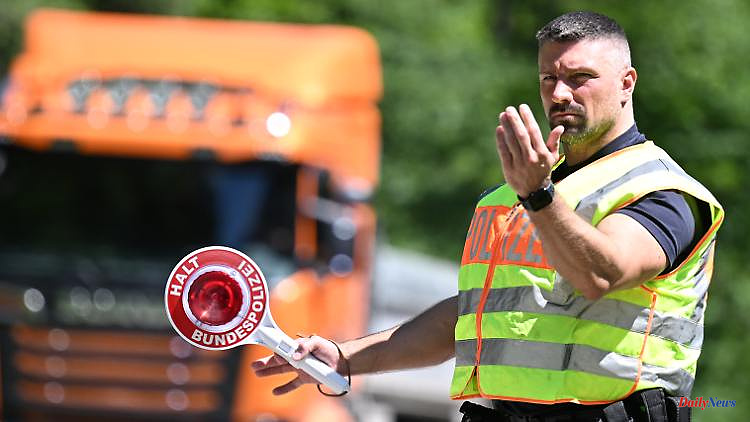The heads of state and government of the G7 and representatives of the EU will meet in Elmau, Upper Bavaria, at the end of June. Thousands of police officers are supposed to protect the event, and large-scale counter-protests have been announced. Critics of the meeting are already complaining about possible restrictions and bans.
The opponents of the G7 summit at Schloss Elmau want to accompany the meeting with numerous protest events, despite a huge police presence. Among other things, demonstrations are planned in Garmisch-Partenkirchen and Munich, a star march with four routes to the meeting place of the heads of state and government and a protest camp, as the organizers in Munich announced. You expect several thousand participants. An "alternative summit" is also planned for Munich.
The G7 meeting is to take place for the second time from June 26th to 28th in the alpine luxury hotel at the foot of the Wetterstein mountains. The hotel will be hermetically sealed off with a 16-kilometer cordon and security zone. The federal police alone will be on duty with around 7,000 officers. This was reported by the President of the Federal Police Headquarters in Munich, Karl-Heinz Blümel, in Griesen on the Austrian border.
A total of around 18,000 police officers is expected. Unlike in 2015, the organizers are assuming that the protest camp in Garmisch-Partenkirchen with campsites for around 750 people will be approved from the outset this time. However, as a precautionary measure, they announced a lawsuit against an expected ban on demonstrations in front of the conference hotel where Chancellor Olaf Scholz plans to meet US President Joe Biden and the other summit participants. In addition to the USA and Germany, the G7 also includes Japan, Great Britain, France, Italy and Canada, and the EU is also represented at all meetings.
Opponents accuse the G7 of being responsible for hunger and growing inequality in the world with their policies. As in 2015, the security authorities are trying to prevent the arrival of violent autonomists from the outset. In 2015, up to 10,000 federal police officers were deployed in connection with this, and there were also temporary border controls at that time. More than 360,000 people were checked.
Travelers can already expect entry controls at all German borders by July 3rd. "We will do everything we can to keep the disruption to the citizens as low as possible," said Blümel. Police officers on horseback carry out checks on roads and trains, but also on hiking trails. The organizers of the numerous counter-events are cooperating under the motto "Stop G7 Elmau" and accuse the authorities of wanting to restrict freedom of assembly and freedom of expression. After the star march, there should be no rally within sight or hearing of the hotel - not even for a delegation of around 50 participants, criticized Claus Schreer, one of the main organizers. "That was flatly rejected by the police and authorities."
Schreer announced a lawsuit in the event of a ban. "We will not accept a ban on the planned rally near the G7 meeting place by the assembly authority."












